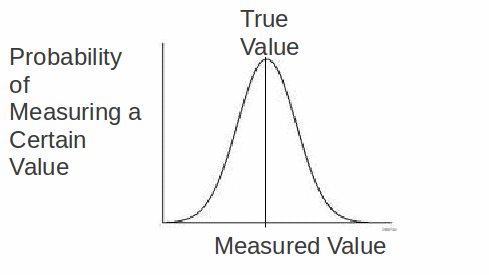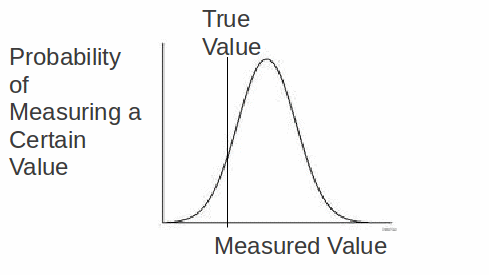Every measurement is uncertain, giving rise to a measure of error. An experimental error means that there is a difference between the true (unknown) value, and the measured value. Errors can be categorized as random or systematic.
Sytematic errors arise due to mistakes in the design of an experiment, miscalibration of instruments or the observer repeatedly making the same mistake.
Random errors are unavoidable. We can minimize them at most. They are due to the fact that an instrument can only be read to a certain precision, or that the environment in which an experiment is conducted is constantly changing, as well as observer errors.
These give rise to the following definitions:
An accurate experiment is one accompanied by a small systematic error, but a precise experiment gives rise to a small random error.
The graph below illustrates random error. The normal distribution is followed.

The graph below illustrates systematic error. The difference is obvious and due to some recurring error.

